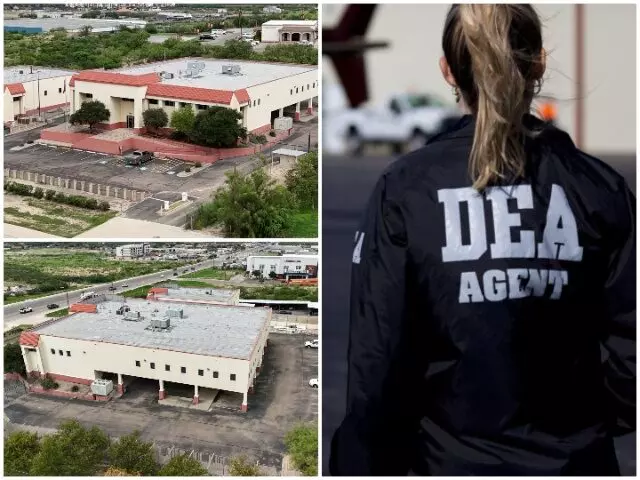In Eagle Pass and Del Rio, Texas, the Drug Enforcement Administration (DEA) has almost abandoned its offices, according to a source within the Department of Homeland Security. The lone special agent in one border office and a local police task force officer in the other are all that remains to work on a 604-mile stretch between El Paso and Laredo designated as a High Intensity Drug Trafficking Area (HIDTA. This area is traditionally spearheaded by the DEA, which responds to drug seizures made by Border Patrol and other local and state authorities.
The source reports that the mostly empty offices can no longer provide investigative and criminal prosecution services due to attrition and personnel reassignments by the federal narcotics agency. Only one special agent is left in Eagle Pass, while a local law enforcement officer maintains the facilities in Del Rio. The DEA’s current workforce of over 10,000 employees, with nearly half being special agents, seems insufficient to handle the increasing fentanyl seizures across the United States and along the southwest border.
The Eagle Pass/Del Rio portions of the South Texas HIDTA serve as a significant transportation hub for San Antonio and beyond. Synthetic drugs like fentanyl are responsible for killing more than 150 Americans daily, according to the Centers for Disease Control (CDC. The source emphasizes that it does not make sense to abandon the border region where much of the fentanyl originates, as this sends a message that the federal agency primarily tasked with national drug enforcement strategy doesn’t care enough to remain at the border.
As law enforcement officers continue their efforts to remove drugs from the streets, local agencies will need to rely on themselves to carry out tasks under the auspices of DEA’s authority as task force members without the special agents present. This raises concerns about the efficiency and effectiveness of the DEA in fighting drug trafficking along the Texas border.
The DEA has faced similar staffing issues in other locations, such as shuttering two offices in China to prevent precursor fentanyl chemicals from reaching Mexican drug cartel operatives. It is unclear whether the severe staffing shortages facing the Texas border offices are related to planned downsizing or just unchecked attrition. A request for information from the DEA and its parent agency, the Department of Justice, remains unanswered as of press time.

